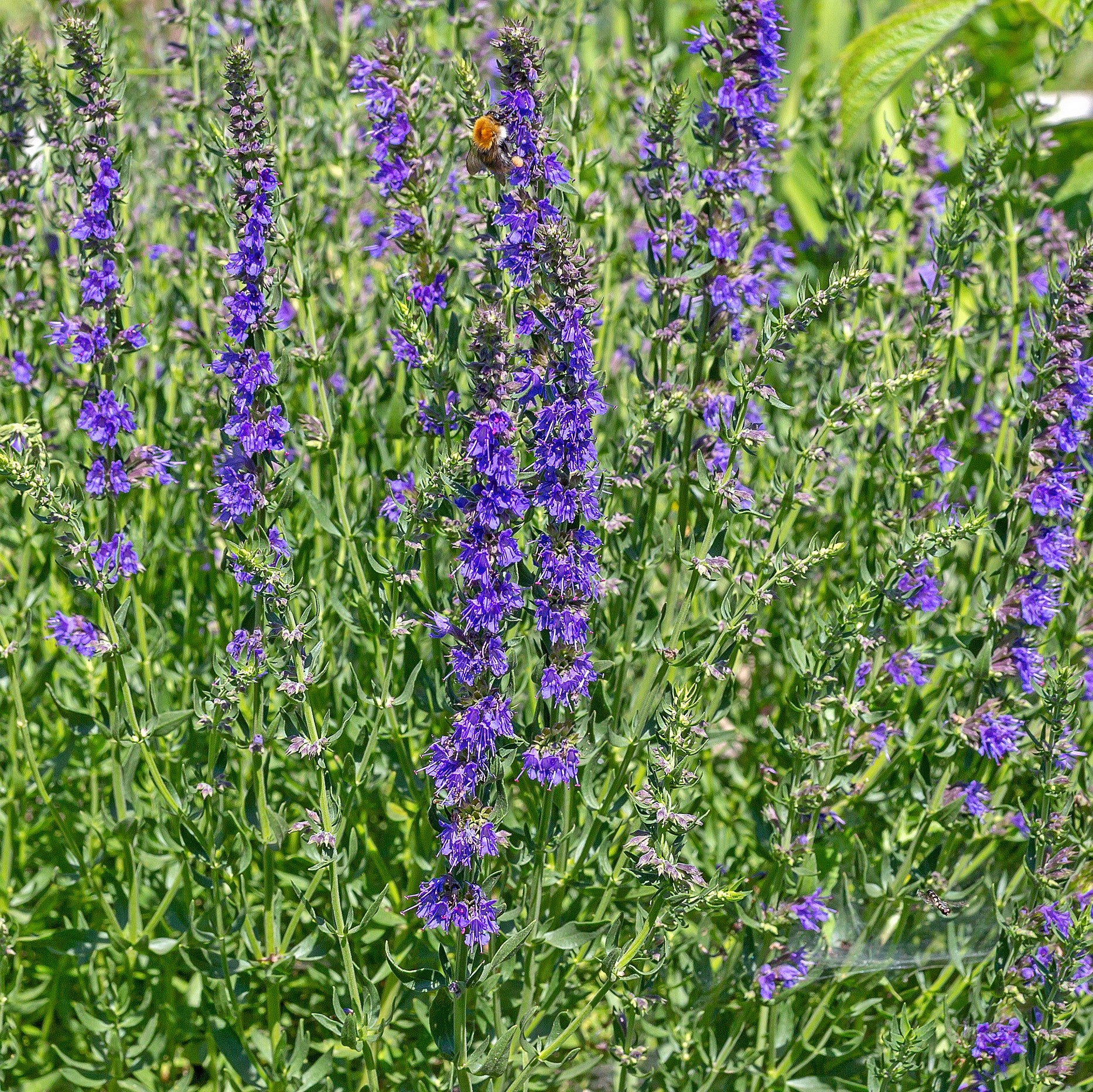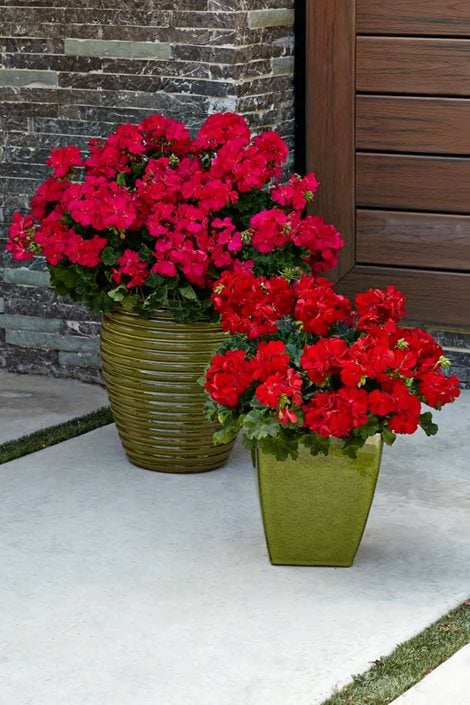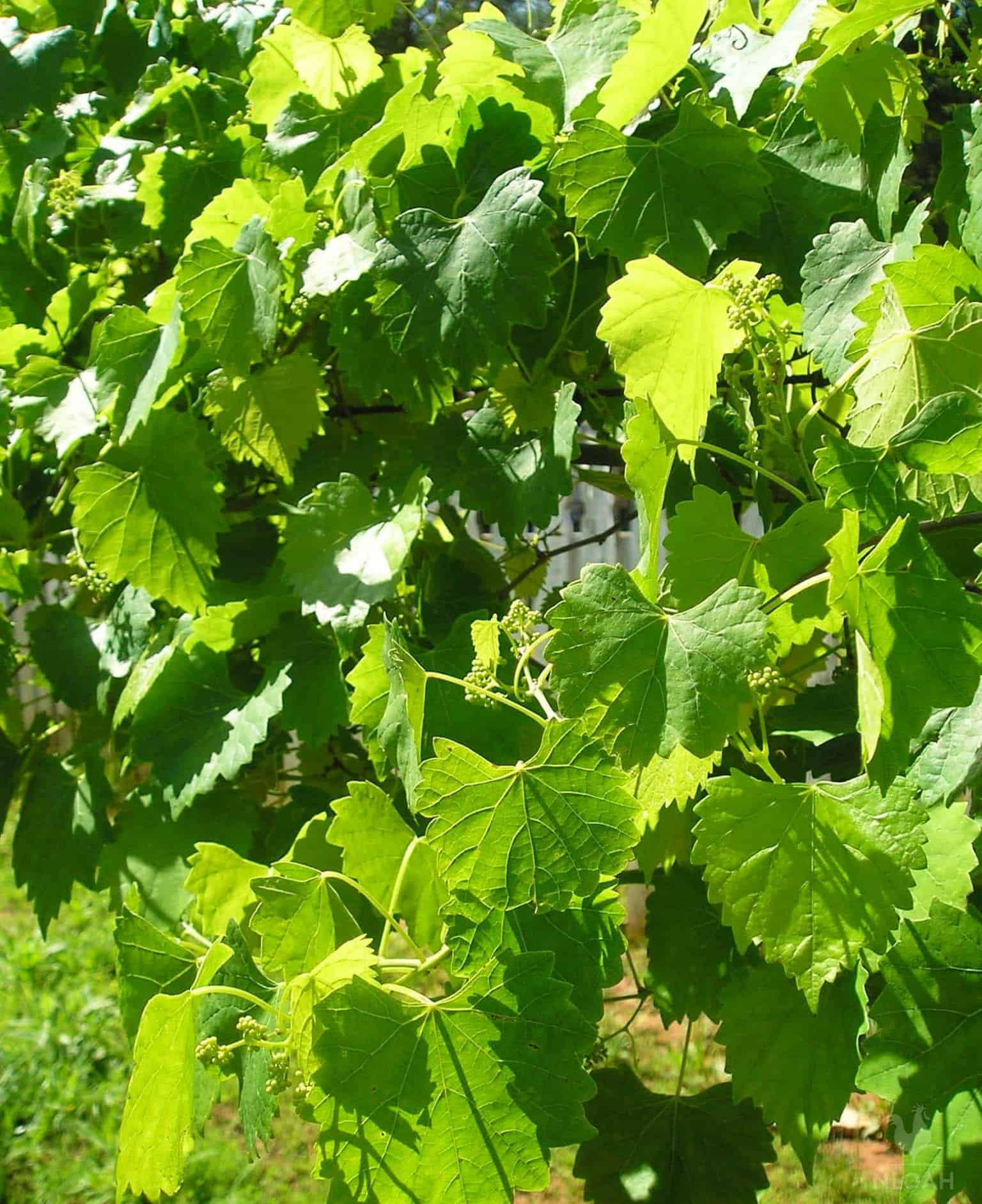Grape Companion Plants That Will Boost Your Yield
Grape companion planting is a gardening practice of planting different types of plants together in order to create a mutually beneficial relationship. By planting the right companion plants near your grape vines, you can help to improve their health, productivity, and pest resistance.
There are many different companion plants that can be beneficial for grapes. Some of the most popular options include:
- Clover: Clover is a nitrogen-fixing legume that can help to improve the soil quality around your grape vines. It also helps to suppress weeds and attract beneficial insects.
- Peas: Peas are another nitrogen-fixing legume that can benefit grape vines. They also help to improve soil aeration and drainage.
- Blackberries: Blackberries can help to shade your grape vines from the hot sun and protect them from pests. They also produce delicious berries that you can enjoy fresh or make into jams and pies.
- Hyssop: Hyssop has a strong scent that repels many common garden pests, such as aphids, cabbage worms, and spider mites. It also attracts pollinators, which can help to increase the fruit production of your grape vines.

- Basil: Basil is another herb that can help to repel pests. It also has a strong scent that can mask the smell of ripe grapes, deterring animals from eating them. Basil also attracts pollinators.
- Beans: Beans are another nitrogen-fixing legume that can benefit grape vines. They also help to improve soil structure and drainage.
-(2).jpg)
- Geraniums: Geraniums are flowering plants that can help to attract beneficial insects, such as ladybugs and lacewings. These insects prey on pests that can damage grape vines.

- Oregano: Oregano is a herb that has a strong scent that can repel pests. It also attracts pollinators.
- Rosemary: Rosemary is a herb that can help to improve the flavor of grape wine. It also has a strong scent that can repel pests.

- Tansy: Tansy is a flowering plant that can help to repel pests. It also has a strong scent that can mask the smell of ripe grapes, deterring animals from eating them.
- Mulberry: Mulberry trees can provide shade and wind protection for grape vines. They also produce delicious berries that you can enjoy fresh or make into jams and pies.

When choosing companion plants for your grape vines, it is important to consider the size and growth habit of the plants. Some companion plants, such as blackberries, can grow quite large and may need to be pruned regularly to prevent them from shading out your grape vines.
It is also important to consider the climate and growing conditions in your area. Some companion plants, such as clover, are more tolerant of cold weather than others.
With a little planning, you can choose the right companion plants for your grape vines and enjoy a bountiful harvest of delicious grapes.
Grape companion planting is a great way to improve the health and productivity of your grapevines. By planting certain companion plants near your grapes, you can attract beneficial insects, deter pests, and improve the soil quality.
Some of the best companion plants for grapes include:
- Hyssop: This herb repels pests like spider mites and aphids.
- Oregano: This herb attracts beneficial insects like ladybugs and lacewings.
- Basil: This herb also attracts beneficial insects and can help to improve the flavor of your grapes.
- Beans: Beans are nitrogen-fixing plants, which means they can help to improve the soil quality for your grapes.
- Blackberries: Blackberries provide shelter for beneficial insects and can help to shade your grapes from the hot sun.
For more information about grape companion planting, please visit Gardenia Inspiration. This website has a wealth of information about companion planting, including a list of specific plants that are good for grapes.
FAQ of grape companion plants
Here are the 5 most frequently asked questions about grape companion plants, along with some valuable insights and solutions:
1. What are some good companion plants for grapes?
Some good companion plants for grapes include:
- Herbs: Herbs such as basil, chives, mint, and rosemary can help to deter pests and diseases from grapes. They can also help to improve the flavor of the grapes.
- Flowers: Flowers such as marigolds, nasturtiums, and sunflowers can also help to deter pests and diseases from grapes. They can also attract pollinators, which can help to improve fruit production.
- Vegetables: Vegetables such as beans, broccoli, and tomatoes can also be good companion plants for grapes. They can help to improve the soil quality and provide shade for the grapes.
2. How close should companion plants be planted to grapes?
The distance between companion plants and grapes will vary depending on the size of the plants. In general, you should plant companion plants at least 2 feet away from grapes. This will give the plants enough space to grow and thrive.
3. What are some of the benefits of planting companion plants with grapes?
There are several benefits to planting companion plants with grapes. Some of these benefits include:
- Increased pollination: Companion plants can attract pollinators, which can help to improve fruit production.
- Reduced pest and disease pressure: Companion plants can help to deter pests and diseases from grapes.
- Improved soil quality: Companion plants can help to improve the soil quality, which can benefit the growth of grapes.
- Enhanced aesthetics: Companion plants can add visual interest to your grape garden.
4. What are some of the challenges of planting companion plants with grapes?
There are a few challenges that you may encounter when planting companion plants with grapes. Some of these challenges include:
- Competition for resources: Companion plants may compete with grapes for water, sunlight, and nutrients.
- Disease transmission: Companion plants may transmit diseases to grapes.
- Allelopathic effects: Some companion plants may have allelopathic effects, which means that they can release chemicals that suppress the growth of other plants.
5. How can I choose the best companion plants for my grapes?
When choosing companion plants for your grapes, there are a few factors that you should consider. These factors include:
- The size of the plants: Companion plants should be compatible with the size of your grapes. For example, you wouldn't want to plant a large tree next to a small grape vine.
- The needs of the plants: Companion plants should have similar needs as your grapes. For example, if your grapes need full sun, you should choose companion plants that also need full sun.
- The pests and diseases that affect your grapes: Companion plants can help to deter pests and diseases from grapes. If you know what pests and diseases affect your grapes, you can choose companion plants that are known to deter those pests and diseases.
Image of grape companion plants
- Nasturtium: Nasturtium is a flowering plant that is known for its bright orange and yellow flowers. It is a good companion plant for grapes because it helps to deter pests and diseases.

- Chives: Chives are a herb that is known for its strong onion flavor. It is a good companion plant for grapes because it helps to repel pests and diseases.

- Marigolds: Marigolds are a flowering plant that is known for its bright orange and yellow flowers. It is a good companion plant for grapes because it helps to attract beneficial insects and repel pests.

- Cucumbers: Cucumbers are a vegetable that is known for its refreshing taste. It is a good companion plant for grapes because it helps to suppress weeds and improve the soil quality.

- Herbs: Herbs such as basil, oregano, and thyme are good companion plants for grapes because they help to deter pests and diseases.


Post a Comment for " Grape Companion Plants That Will Boost Your Yield"